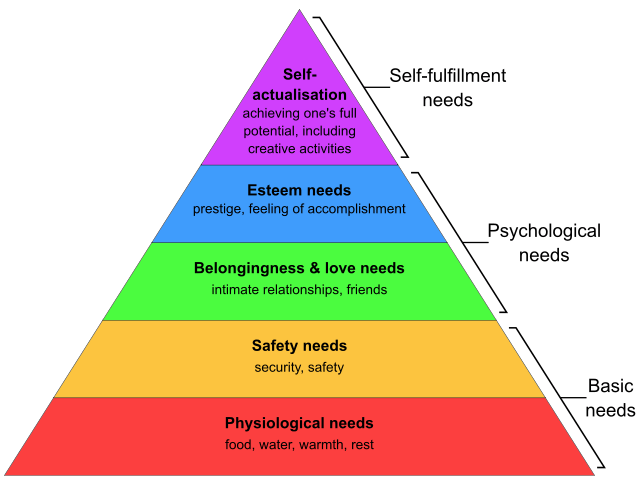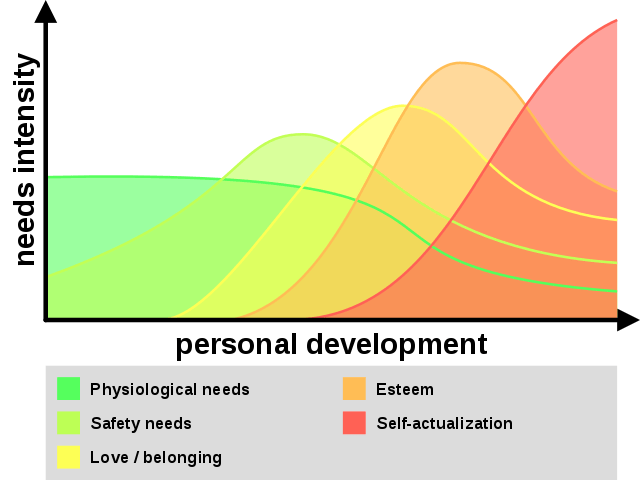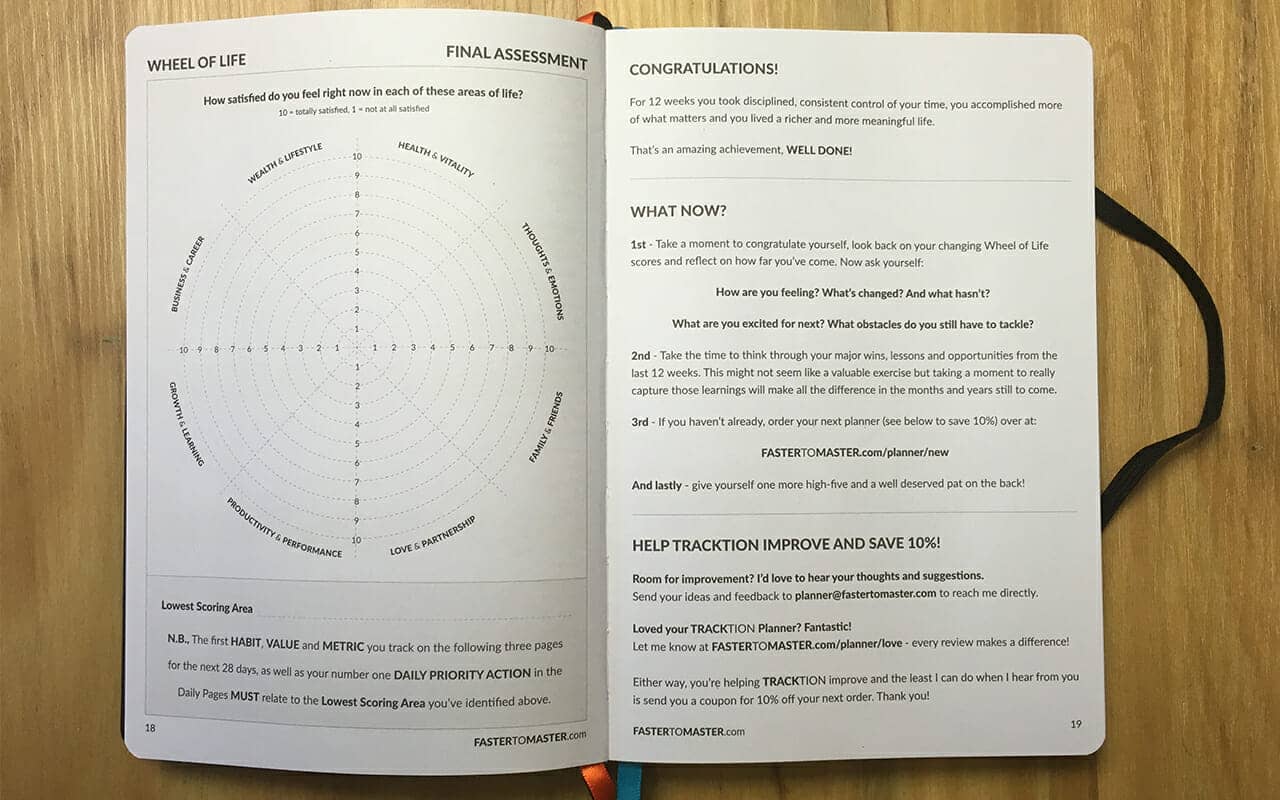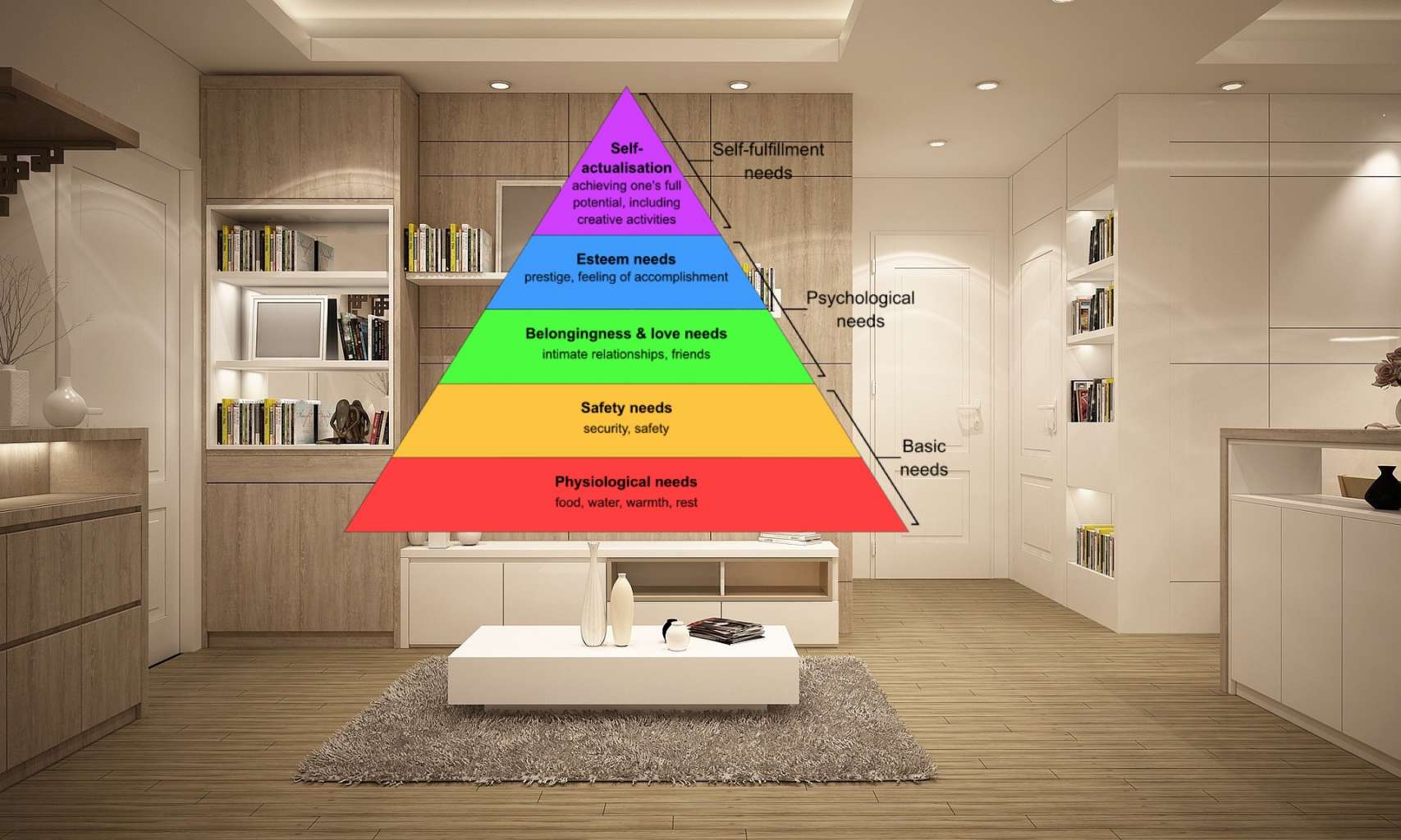Podcast: Download
Subscribe: Apple Podcasts | RSS
 Did you know that nearly every discussion of Maslow’s hierarchy of needs is missing an essential piece of the pyramid?
Did you know that nearly every discussion of Maslow’s hierarchy of needs is missing an essential piece of the pyramid?
It’s true, and today we’re going to restore that piece.
On top of that, we’re going to dive deep into how you can fulfill each tier in your life.
Even better, I’m going to help you remember each of the needs.
That way, as you work on improving your life and the lives of others, you’ll be able to rapidly access a mental database packed with examples of psychological needs.
And you’ll be able to fulfill your full potential.
Perhaps you’ll even be able to go beyond that because there’s one need in particular that Maslow wasn’t able to publish before he died.
I’ll share what it is, show you how to experience it and give you tips on maintaining this missing piece of the pyramids of needs once you’ve got it in place.
Ready?
Let’s dive in!
What Are Cognitive Needs? The Forgotten Tier In Maslow’s Hierarchy of Needs
As the term “cognitive needs” suggests, we have cognitive awareness of things we want and need from life.
We’re not the only species that has such awareness, but our cognitive abilities are so developed that we seem to be especially sensitive to things we don’t have.
Abraham Maslow got very interested in humanity’s special sensitivity to a set of human requirements that led to him developing the hierarchy of needs.
Often, you see Maslow’s needs placed within a pyramid.
The wider needs are basic and as you move up the pyramid, you get psychological and fulfilment needs. All together, the needs in the basic pyramid of needs are:
- Physiological needs (food, water, warmth, rest)
- Safety needs (security, safety, predictability)
- Belongingness and love (intimate relationships and friends)
- Esteem needs (prestige, sense of accomplishment)
- Self-actualization (creativity, fulfilling your potential)
Maslow first presented these needs in a paper titled, “A Theory of Human Motivation.”
Solving the “First Glance” Problem With The Pyramid of Needs
One mistake that people sometimes make is thinking that you can move up the pyramid and leave earlier needs behind.
But this isn’t the case. You always need to balance the needs, which is why an alternative, dynamic visualization can help understand Maslow’s hierarchy as something that plays out over time:
Others have interpreted the hierarchy of needs in terms of a circle.
For example, my friend Arthur Worsley used the “Wheel of Life” format in his “Faster to Master” Tracktion Planner:
In this case, the “needs” are modernized to include cognitive needs examples like:
- Health and vitality
- Thoughts and emotions
- Family and friends
- Love and partnerships
- Productivity and performance
- Growth and learning
- Business and career
As you can probably see, “productivity and performance” are basically the same as Maslow’s original esteem needs.
In truth, there’s no perfect way to visualize the hierarchy. The best thing is to find a model that works for you so you can bring balance to all of the needs in your life.
The Missing Cognitive Need
As great as Maslow’s original hierarchy can be, he ultimately wasn’t happy with it.
Towards the end of his career, he wrote The Farther Reaches of Human Nature.
In this book, he described a very special cognitive need he called self-transcendence.
Basically, it’s like the “karma yoga” concept we talked about in my post on mental strength. The idea is that you ultimately put your own needs aside as much as possible, if not entirely.
Many people who have sought to master their memory share this concept. For example, Giordano Bruno described a kind of nondual experience where you would experience a kind of oneness with the entire universe.
Sound weird and raise your skeptical hackles that a psychologist like Maslow would suggest such things?
Well, here’s Maslow in his own words from The Farther Reaches of Human Nature:
Transcendence refers to the very highest and most inclusive or holistic levels of human consciousness, behaving and relating, as ends rather than means, to oneself, to significant others, to human beings in general, to other species, to nature, and to the cosmos.
I myself have suggested something similar in my book The Victorious Mind. Fulfilling the cognitive need to give to others without expectation of return is hard, make no mistake. But this “karma yoga” is indeed far more fulfilling than I ever imagined possible.
In fact, fitting it into your life is highly recommended.
Why It’s Important to Fulfill Your Cognitive Needs
We’re all on this planet together.
That’s the ultimate reason why you really should spend time every week working on your personal hierarchy or “wheel of life.”
The more people who self-transcend, the better it will be for everyone. Eckhart Tolle makes an excellent argument for increasing the number of transcended people in his book, A New Earth.
A similar point is made by John Danaher who focuses on the positive outcomes technologically is likely to bring when it comes to freeing humanity from work.
Let’s take another example. The reason you want to make sure you’ve fulfilled every example of physiological needs specifically comes down to your ability to learn faster, focus and remember things.
But you can’t do that if you’re clogging your mind with foods that destroy your memory and create brain fog.
The same goes for your career, study needs, family and personal rituals around sleep, meditation and the quality of your memory.
The good thing is that if you start working with your memory first, you’ll be able to better remember to focus on all the other parts of the hierarchy.
With that in mind, let’s talk about a powerful memory technique that will help you do just that.
How to Use a Memory Palace to Satisfy Your Cognitive Needs
Along my personal journey, I found it useful to go beyond merely reading about Maslow’s hierarchy.
I also memorized it while completing journaling exercises that use the Wheel of Life.
The best technique for getting all of the cognitive needs into memory? The Memory Palace technique.
Let’s say you memorize Maslow’s original hierarchy.
All you have to do to memorize it is mentally layer it on a wall in a room of your house, your school or where you work. Like this:
By placing the pyramid in a familiar space, you give your mind an anchor point it can refer back to when you want to recall each tier.
If you need more “stickiness” you can add a memory technique like the number rhyme or other forms of mnemonic imagery.
With practice, you can memorize information like this often within minutes.
Once in memory, it will be much easier for you to remember to focus on each tier as you go about your life.
Memorize The Pyramid Of Needs And Succeed
I’m so glad I took time to really understand Marlow’s formula. And not just the original form, but the enhanced format he wasn’t able to fully promote before he died.
Luckily, people have expanded the concept since his time with alternative versions like the Wheel of Life.
But as I hope to have made clear, it’s important for you to experiment with multiple versions. Even if you find one that feels “right,” I suggest you continue to study and experiment.
Many cultures have interesting variations and the more you can consider them both through study and application, the more you’ll benefit.
And who knows?
Perhaps one day you’ll transcend and become so selfless that you’ll enjoy a life of giving.
That’s certainly my goal, and to paraphrase the playwright Howard Baker put it, “because it is hard, I feel honored.”
Not everyone agrees that humans need to take on challenging projects to feel fulfilled, but it’s certainly worked for me.
One of those projects is to give this free course away to as many people as possible:
Is it really free?
Yes, but it does “cost” your time, attention, focus and energy.
However, complete the exercises and you will emerge with a memory system that allows you to learn faster and remember more.
And you’ll have practice fulfilling one of the biggest cognitive needs of them all:
The esteem need to feel a sense of accomplishment.
I enjoy that sense every time I memorize something new and know that you will too once you have some Memory Palaces set up and in use.
So what do you say?
Are you ready to get out there and make the cognitive needs your own by committing them to heart and practicing fulfilling each and every one (including the lost tier)?
I wish you a great journey and hope to meet you some time and place along the way!
Related Posts
- 2019 Canadian Memory Champion Reveals His Memory Secrets
James Gerwing completed the Magnetic Memory Method Masterclass a while ago. In 2019, he became…
- What Are Cognitive Abilities (And Can You Improve Them)?
Cognitive ability is often confused with cognitive traits. Learn exactly what is involved with different…
- What Are Cognitive Maps & Do They Work With Memory Palaces?
How do cognitive maps help you with directions? In this post, learn all about cognitive…










2 Responses
I was shocked when I came across Maslow’s hierarchy of needs in mediation professional training. I was further shocked to discover that if your parties in dispute’s needs are fully understood, then it is easier to help them get to the root cause(s) of their problems and negotiate a lasting settlement.
I will now use this technique to learn the needs of parties and use the memorised needs innately to be a better Mediator. Thanks
Thanks, Laurian.
Having this material in memory is indeed a great way to learn more about what others need and being empathetic by tapping into deeper knowledge of our own.